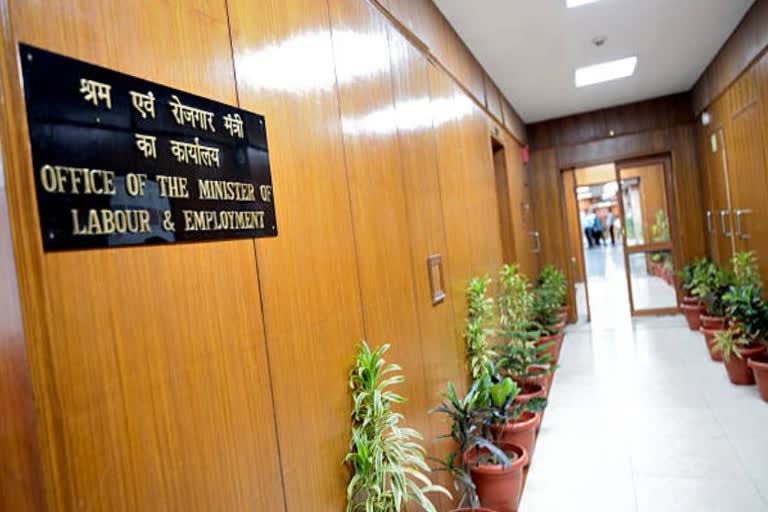New Delhi: There are many anomalies in the draft rules on Code on Wages circulated by the Labour Ministry to seek stakeholders' views, trade unions, including RSS affiliate BMS, said on Tuesday.
The unions are expected to reach out to the ministry with pointwise objections in their respective representation on the draft rules this week.
Talking on the draft rules, Bharatiya Mazdoor Sangh (BMS) General Secretary Virjesh Upadhyay said, "There are many anomalies in the draft rules on Code on Wages which need to be amended. The new rules are silent about many provisions clearly provided in the four Acts subsumed in the Code".
Citing an example he said there is no clarity on the working hours in the draft rule. The working hour should be six hours a day. Besides, there are issues related to fixation of the minimum wage in the draft rules.
"The rules do not provide for up-gradation of a workers' to the semi-skilled or skilled category from unskilled. That generally happens in any trade. People join a job as a fresher and improve his or her skills. That is missing in the draft rules. We are studying the draft rules in detail and would come up with pointwise analysis and suggestions. We would submit our representation in next 2-3 days," he told PTI.
Similar views were echoed by the All India Trade Union Congress (AITUC) General Secretary Amarjeet Kaur.
"The draft rules do not provide for representation of trade unions in the wage fixation committee. The earlier four Acts subsumed in the Code provided for that. There are many other shortcomings which need to be improved in the rules. We are going to file a detailed representation of the draft rules this week," she said.
Kaur also said there is an issue with the definition of wages, which also need to be corrected.
The Labour Ministry circulated draft rules on Code on Wages November 1, 2019, and sought stakeholders comments till December 1, 2019.

Earlier in August this year, Parliament had approved Code on Wages Bill 2019, which provides for the introduction of the minimum wage for every worker besides addressing issues like delay in payment to employees.
The Act subsumed four labour laws, Minimum Wages Act, Payment of Wages Act, Payment of Bonus Act and Equal Remuneration Act.
Read more: Soon, GDP to be calculated on a new base



